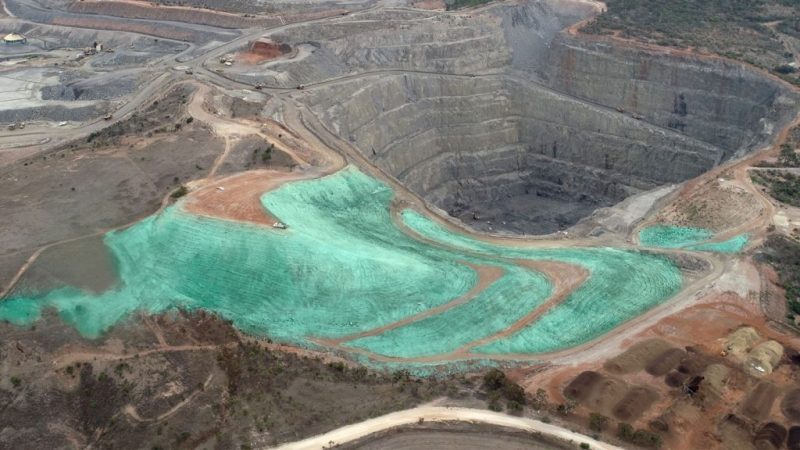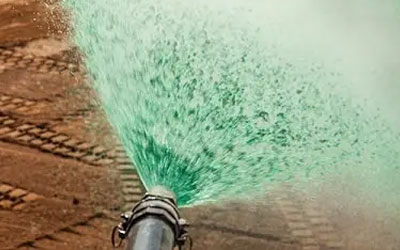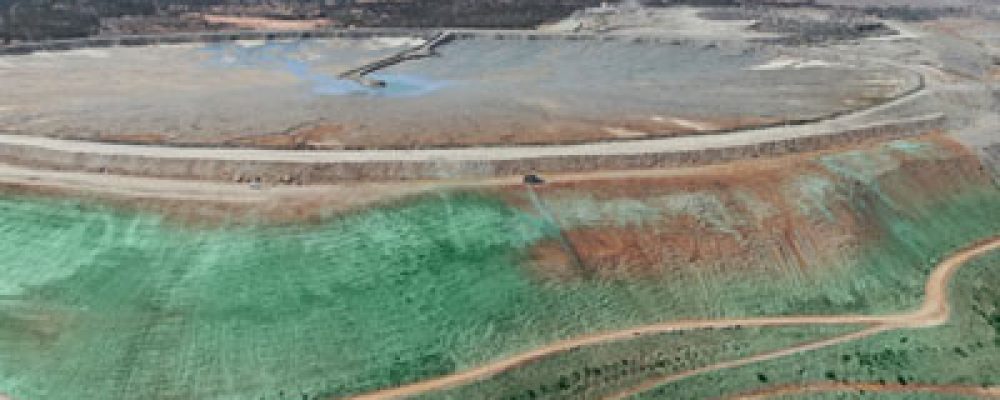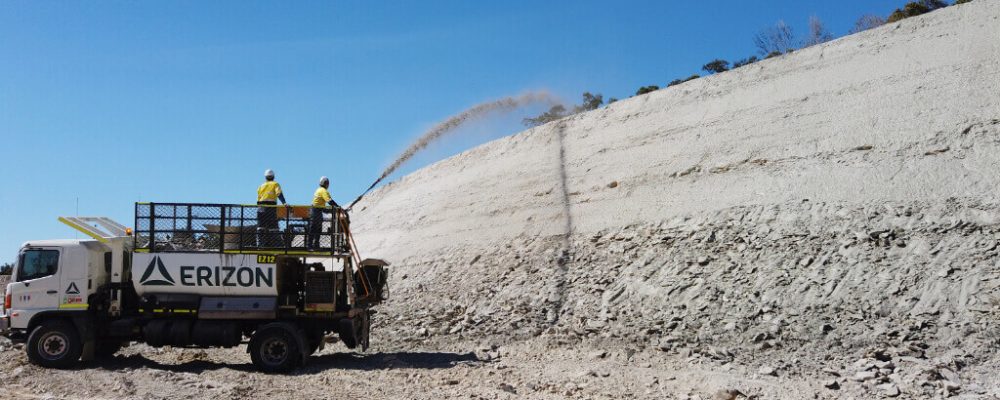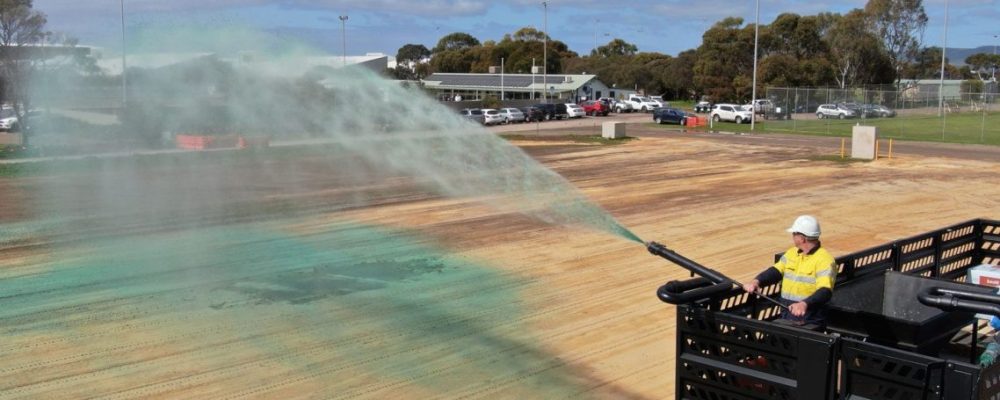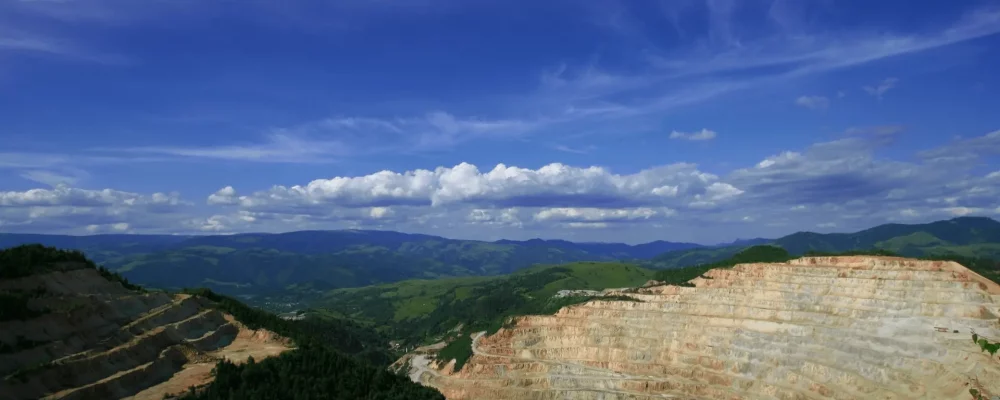Polymer soil stabilisation refers to the process of using polymeric materials to improve the strength, durability and workability of soils, particularly those susceptible to erosional forces. This process is critical in construction, agriculture and environmental rehabilitation efforts where soil integrity is paramount.
Defining Polymers: a Basic Overview
Polymers, in the simplest terms, are large molecules composed of many smaller, repeating units called monomers. Imagine a long freight train, where each car represents a monomer. When these cars (or monomers) are linked together in a chain, they create what we call a polymer. These chains can be as simple or as complex as necessary, allowing for a vast range of polymers with different properties. This molecular structure is what gives polymers their unique ability to bind and stabilise soil.
Polymers significantly increase the shear strength of the soil, helping it maintain its form under stress and protect against erosional forces such as water and wind. Two commonly used polymers for soil stabilisation are polyacrylamide (PAM) and polyvinyl alcohol (PVA), both of which have demonstrated high efficiency in improving soil properties.
The Role of Polymers in Stabilising Soil
Polymers play a pivotal role in soil stabilisation projects due to their unique binding characteristics and water retention capabilities. When applied to soil, polymers penetrate the ground and create a bond with soil particles, forming a strong, stable matrix. This increases the soil’s resistance to erosional forces, enhancing its structural integrity and durability.
Polymers and Environmental Safety
One common concern with using chemicals in soil stabilisation is the potential impact on the environment. However, both PAM and PVA have been extensively studied for their environmental safety, and the results have been overwhelmingly positive. PAM and PVA are considered non-toxic, biodegradable, and safe to use in soil stabilisation projects. Additionally, as these polymers improve the soil’s strength and stability, they can also help reduce erosion and improve water retention, leading to healthier vegetation growth.
Chemical Interactions with Polymers and Soil
The enhanced binding properties of polymers also significantly improve the soil’s water-holding capacity. The hydrophilic nature of some polymers allows them to absorb water and swell, thereby retaining moisture within the soil. This is essential in agriculture, where moisture retention promotes plant growth, as well as in construction scenarios, where it prevents soil from drying and cracking.
Benefits of Using Polymer Soil Binders in Stabilisation Projects
In addition to enhancing soil properties, polymer soil binders offer numerous benefits in stabilisation projects. Here’s how:
Easy Application
One of the primary benefits of using polymer binders in soil stabilisation is their ease of application. Unlike other soil stabilising agents, polymers can be easily applied through spraying or direct application, even on large construction sites or agricultural lands. This eliminates the need for heavy equipment, reducing the overall cost and disruption to the environment. Moreover, because of their unique ability to bond with soil particles, polymers can penetrate deeply into the soil, ensuring comprehensive stabilisation.
Low Maintenance
Polymers, particularly PAM and PVA, also offer low-maintenance solutions for soil stabilisation. Once applied to the soil, these polymers form a durable matrix that can withstand various erosional forces, reducing the need for recurrent treatments. In addition, due to their water-retention properties, polymers can help maintain soil moisture levels, minimising the need for regular irrigation in agricultural settings. This results in significant cost savings and resource conservation over time.
Effective Long-Term Protection
Lastly, the use of polymer binders in soil stabilisation provides effective long-term protection against soil degradation. The strong, stable matrix created by polymers improves the soil’s resistance to water and wind erosion, preserving its structural integrity for extended periods. Moreover, by absorbing water and swelling, polymers can mitigate soil shrinkage and cracking, common issues associated with seasonal changes in moisture levels. This long-lasting protection is particularly beneficial in construction and agriculture, where soil stability is crucial for long-term success.
Advantages over Traditional Soil Stabilisation Methods
Chemical soil stabilisation, particularly with polymers, has several advantages over traditional methods such as physical and biological soil stabilisation. A key advantage is its efficacy across a wide range of soil types, including those that are challenging for physical methods, like sandy or clay-based soils. Chemical stabilisation effectively binds these soil particles, enhancing their resistance to erosional forces, and resulting in a more sustainable and durable surface structure.
Physical stabilisation methods, such as compaction or cementation, often require extensive labour and heavy machinery, leading to higher costs and potential environmental disruption. Chemical stabilisation, on the other hand, is relatively simple and cost-effective, requiring fewer resources for application and maintenance.
Compared to biological stabilisation, which relies on plant roots to improve soil structure and stability, chemical stabilisation provides quicker results. While biological methods can take several growing seasons to fully stabilise soil, chemical methods can achieve immediate improvements in soil cohesion and water retention, making them better suited for time-sensitive projects.
Furthermore, the use of biodegradable and non-toxic polymers such as PAM and PVA ensures environmental safety, addressing a common concern associated with chemical methods. Unlike some traditional methods, these polymers do not introduce harmful substances to the environment, making them a safer choice for soil stabilisation.
Different Applications of Polymer Soil Stabilisation
The advantages of polymer soil stabilisation are extensively documented, and the true versatility of this method becomes apparent when we consider its diverse range of applications:
Road Construction and Maintenance: The binding properties of polymers enhance the strength and durability of the road foundation, reducing the risk of potholes, rutting and other forms of wear and tear. Furthermore, polymers help maintain soil moisture levels, minimising dust issues on unpaved roads and improving the overall road quality.
Building Foundations: By improving the soil’s load-bearing capacity, these polymers enable a safer and more stable foundation for buildings. They mitigate common soil-related issues like shrinkage and cracking that can compromise the structural integrity of a building.
Land Reclamation: Polymer soil stabilisation products can transform degraded, non-productive lands into usable and fertile grounds by enhancing their physical and chemical properties. For instance, the use of polymers can reduce soil erosion and improve water retention, promoting healthier vegetation growth. This makes polymers a highly effective solution in restoring landscapes, combating desertification, and reclaiming mining sites.
We Offer Polymer Soil Stabilisation Products
Erizon offers innovative soil stabilisation and erosion control solutions that leverage the unique properties of polymers to effectively address a wide range of soil-related challenges.
HydroBond
HydroBond is a versatile and cost-effective dust suppression solution that effectively locks in dust while allowing air and water to permeate the surface. It works with all soil and sand types, providing immediate dust suppression and promoting long-term revegetation goals. With its unique combination of polymers and additives, HydroBond enhances soil water retention, prevents nutrient loss and accelerates germination and plant growth for efficient and effective revegetation.
Discover Erizon’s Expertise in Polymer Soil Stabilisation
Our products guarantee not only enhanced soil strength and durability but also contribute to sustainability by minimising water and resource consumption. At Erizon, we are firmly committed to delivering quality products that cater to the requirements of diverse sectors such as construction, agriculture and land reclamation. Trust us to provide you with cutting-edge soil stabilisation solutions that will elevate your project’s long-term success and environmental sustainability.
You can find the right polymer soil stabilisation solution. Contact Erizon today to learn more about our soil stabilisation efforts.
